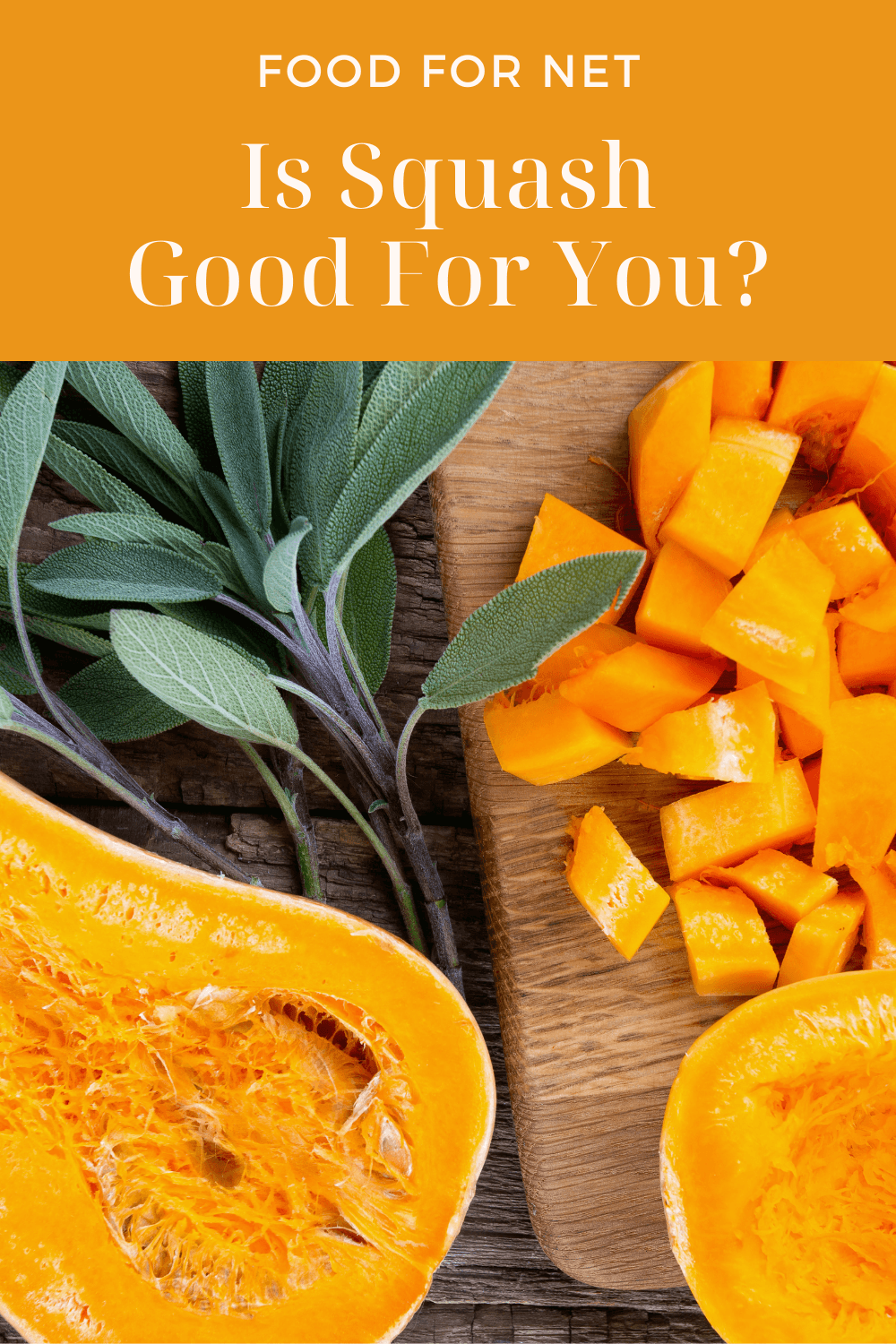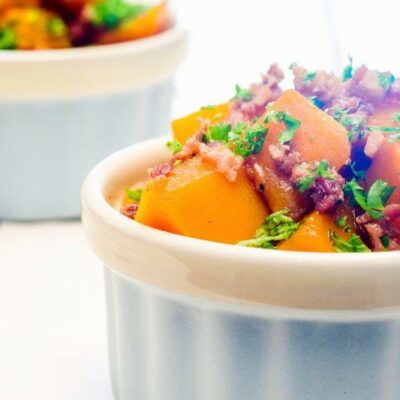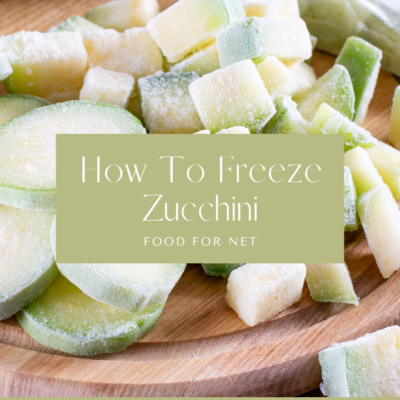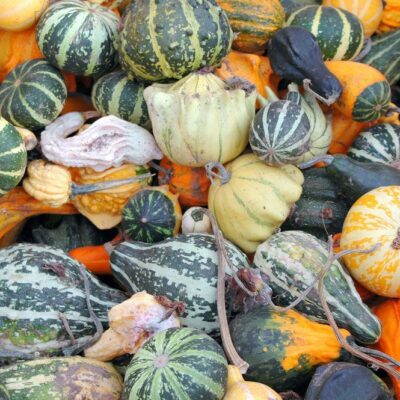
The term squash is a broad one, referring to literally hundreds of different varieties, which can be quite different from one another. Butternut squash, zucchini, acorn squash, and pumpkin are just a few examples. You’ll find many more in your local store and at farmer’s markets. Despite all their differences though, squashes have much in common. We must ask then, is squash good for you? After all, eating good food is a huge part of staying healthy.
The answer to this question isn’t as simple as it might seem. While fruits and vegetables have many benefits, they all come with their share of problems as well. How these balance out depends partly on the rest of your diet and also on your individual needs.
So, to find out whether squash is a good choice or not, we need to take a close look at the benefits and risks, along with the various types of squash.
Is Squash Good For You?
- Types Of Squash
- Benefits Of Squash
- How Squash Could Be Harmful
- Ways To Use Squash
- Is Squash Keto Friendly?
- Final Thoughts
Types Of Squash

Squashes fall into two general categories – summer and winter squash.
Summer squashes tend to be harvested throughout summer and are best when they’re fresh. These squashes tend to have thin skin and moist flesh. You can easily eat them raw, skin and all, or you can use them in plenty of recipes.
Zucchini is one of the most famous types of summer squash, although there are plenty of others as well, like crookneck squash, cousa squash, and tatume squash.
Winter squash, on the other hand, have hard skin and their flesh is much firmer as well. They’re harvested later in the year and last much longer than summer squash will. It’s even easy to store winter squash over the winter, hence the name.
While winter squash isn’t very good raw, it works well in countless recipes, including both savory dishes and sweet ones, like pumpkin pie.
Benefits Of Squash
A Great Source Of Nutrients
Like most fruits and vegetables, squash provides you with plenty of nutrients. These nutrients all play roles in your health, helping your body to function well.
Not surprisingly, there are considerable differences depending on the type of squash that you choose.
For a cup of chopped zucchini, a summer squash, you get 19 calories, 4.2 grams of carbs, 1.4 grams of fiber, 1.5 grams of protein, 35% of your daily intake of vitamin C, 14% for vitamin B6, 9% for folate and potassium, and smaller amounts for most other nutrients.
For a cup of butternut squash cubes, a winter squash, you get around 82 calories instead. The carb content is much higher at 22 grams and includes roughly 7 grams of fiber and 2 grams of protein. As for nutrients, you get more than 400% of your daily vitamin A intake (in the form of beta carotene), along with plenty of vitamin C.
As you can see, summer squashes tend to be lower in calories and carbs, but also contain less nutrients per serving. This isn’t too surprising, as they’re high in water.
Provide Antioxidants Too

Antioxidants are always relevant when we’re talking about fruits and vegetables. These powerful compounds do exactly what you’d expect – they decrease oxidation. Specifically, they help protect our cells from oxidative damage caused by free radicals.
This effect is crucial, as high levels of oxidation can cause significant harm, potentially increasing our risk of disease. Diets rich in antioxidants are thought to help protect us from some of these effects, helping us to stay healthier and live longer.
For the most benefits, keep an eye out for brightly colored squash, particularly butternut squash. Brightly colored fruits and vegetables are often antioxidant powerhouses because many important antioxidants are pigment molecules.
Plus, these antioxidants often have other benefits as well. For example, butternut squash contains lutein and zeaxanthin. Both compounds are antioxidants that can also help to protect your eyes.
Low In Calories
Summer squashes contain fewer calories than winter squashes, but both types give you plenty of nutrients for relatively few calories. This is always important, as excess calorie intake quickly leads to weight gain and countless health problems.
Squash can even be a useful ingredient for weight loss. This is true for both types, as summer squashes are low in calories and contain plenty of water, while winter squashes are fantastic for fiber, which helps you to feel full and should decrease your cravings for snacks and sugar.
Helps With Digestion
Squash is a decent source of fiber too, particularly if you choose winter squash. Acorn squash and hubbard squash are some of your best options for fiber, while pumpkins and spaghetti squash offer lower amounts.
While we can’t digest fiber, it is still incredibly important for our digestive systems.
Fiber can be broken down into two categories – soluble and insoluble fiber. Squash is particularly good for soluble fiber. This type dissolves to create a gel-like substance. The effect doesn’t sound appealing, but it’s incredibly helpful, as the fiber decreases the speed that food leaves your stomach. In the process, soluble fiber helps to balance blood sugar and cholesterol levels, while keeping you satisfied for longer.
Even though winter squash is the best choice for fiber, don’t ignore summer squash. You are still getting some fiber from these types of squash, along with very few calories. If you’re closely watching your calorie or carb intake, summer squash might even be the best choice.
Could Improve Health In Other Ways Too
There are many other potential health benefits from squash. For example, varieties that are high in carotenoids might help to protect against cognitive decline, which could even mean decreasing the risk of dementia.
Similarly, antioxidant rich vegetables might help to decrease the risk of cancer and other serious diseases.
Squash is very relevant for your heart as well, as the fiber helps to decrease cholesterol levels, while potassium decreases blood pressure.
How Squash Could Be Harmful

Can Cause Bloating, Diarrhea, And More
Despite all the benefits of squash, this vegetable won’t always agree with your stomach. Part of the problem actually comes from the fiber.
Remember when we said that fiber strongly influences your digestion? Well, this effect can cause problems too, particularly if you change your fiber intake suddenly.
You may find that eating too much squash gives you symptoms like stomachache, bloating, gas, and diarrhea. Don’t worry though, these reactions don’t mean that you need to give up squash. They’re simply a sign to take things more slowly.
Try increasing your fiber intake a little bit at a time and drink plenty of water along the way. Most of the time this will be enough to stop any digestive discomfort. If the side effects continue, talk to your doctor, as there may be an underlying problem that needs to be addressed.
Could Lead To Too Much Potassium
Some types of squash contain a decent amount of potassium. This is excellent news when you’re trying to decrease blood pressure, but can sometimes create problems.
In particular, anyone taking ACE inhibitors or beta-blockers is at increased risk of consuming too much potassium. People with kidney problems are at risk too, as their kidneys may not be able to remove excess potassium.
Most of us aren’t getting enough potassium in our diets, so the potassium content of squash isn’t a big deal. If you are taking medication or have an underlying health condition, it’s important to talk to your doctor before changing your diet. They’ll be able to tell you whether cutting out squash would be harmful or helpful.
Ways To Use Squash

There’s an almost endless array of different ways to use squash, which is hardly surprising, given there are so many types to choose from. Honestly, even if we just focused on pumpkin, we’d be here all day coming up with different ways to use the vegetable.
Still, here are some interesting options to experiment with.
- Make zoodles. These are simply zucchini noodles, made by spiralizing zucchini. Zoodle recipes are popular among keto dieters, as you get a pasta-like ingredient that offers some nutrition and barely any carbs.
- Bake the squash. Most varieties of winter squash can be easily baked, giving you a delicious dish with barely any work. You can take things to the next level by stuffing the squash with complementary fillings.
- Don’t forget about soup. Winter squash always makes the most fantastic soups. Who can go past a rich pumpkin or butternut soup, one that’s packed with flavor?
- Grill your summer squash. Zucchini is particularly delicious when grilled, especially if you use it as a base for other ingredients.
- Include in casseroles. Plenty of casseroles use summer or winter squashes as ingredients. Those with winter squashes tend to be heartier, while summer squash versions are lighter and no less delicious.
Try Spaghetti Squash Noodles
There’s one final approach to consider – spaghetti squash noodles. These are popular as an alternative to regular noodles, as they’re naturally gluten free, are easy to make, and are low in carbs.
The idea is incredibly simple. All you need to do is bake or even microwave a spaghetti squash, then pull out the flesh, which forms spaghetti-like strands. These strands can then be used in the place of pasta for many dishes.
Now, spaghetti squash is a winter squash, so it’s far from being carb free. If you’re eating it on a keto diet, you’ll need to be careful with your serving size to make sure you don’t consume too many carbs. Still, the carb content is much lower than with regular pasta, so for most of us, spaghetti squash is a clear win.
Is Squash Keto Friendly?
There’s often no clear cut answer to whether a given food is keto friendly or not. After all, keto diets mostly focus on keeping your carb intake low. You can fit almost any type of food onto a keto diet if you plan well and watch your portion size.
With squash, part of the answer depends on the type you choose. Summer squashes are often a good choice, as they’re naturally low in carbs. This is partly why zucchini noodles are so popular among keto dieters.
Winter squashes, like pumpkin, tend to be much higher in carbs. You may need to avoid them entirely or be very careful with your portion sizes.
Final Thoughts

Regardless of the type you choose, squash is not only delicious, but comes with many benefits and few risks.
For winter squash, you’re getting a fiber rich vegetable that contains plenty of important nutrients. It also offers a delicious flavor and is used in many favorite dishes and drinks, including pies and even pumpkin spice lattes.
Summer squash is much lighter, offering fewer nutrients and less fiber. It’s also lower in calories and contains a decent amount of water, making it a useful weight loss ingredient.
Squashes can also be used in countless ways, making them a versatile type of vegetable. How can you go wrong with them?
Frequently Asked Questions
Can You Eat Squash Raw?
Summer squashes are often eaten raw. Zucchini is the classic example of this, as it’s often used raw to make zucchini noodles (zoodles).
Winter squash is typically cooked, but it can actually be eaten raw as well. Spiralizing is a great starting approach. Then you can easily include the squash noodles in a salad or in many other dishes.
Can You Eat Butternut Squash Skin?
Butternut squash does have edible skin. However, this skin is tough and can be difficult to eat, unless it is prepared well. In the end, whether you eat the skin or skip it entirely comes down to personal preference.
Is Squash Good For Diabetics?
Squashes are powerful for antioxidants, fiber, and nutrients, features that are all very relevant for diabetics. However, it’s important to watch your portion size, as squashes do tend to be relatively high in carbs. This means they can spike blood sugar levels if you consume too much of them.
Does Squash Need To Be Refrigerated?
Summer squashes should generally be stored in the fridge. This helps to keep them firm and maintains their quality. The reverse is true for winter squashes. If these are uncut, they should generally be kept out of the fridge. But, once winter squashes are cut, it’s time to put them in the fridge instead.
Is Squash Good For Weight Loss?
Squash can work well for weight loss, as it is fairly low in calories and offers plenty of fiber. The fiber can help to keep you full, which is fantastic when you’re trying to lose weight. There isn’t all that much protein present, but that’s okay, as you can easily get protein from other ingredients.








 20 Types of Low Methionine Foods Plus Simple and Healthy Low Methionine Recipes
20 Types of Low Methionine Foods Plus Simple and Healthy Low Methionine Recipes
Leave a Reply